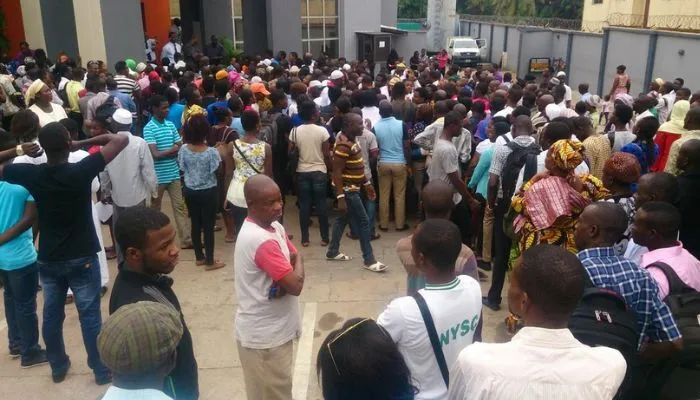System Upgrades Leave Bank Customers Frustrated in Nigeria
Long Que At One Of The Banks In Nigeria
In recent times, many Nigerian banks have undertaken system upgrades to improve their digital platforms and enhance customer experience. However, instead of making banking smoother, these upgrades have caused frustration for many customers. The situation has led to delayed transactions, failed payments, and an overall inconvenience for users who rely on banks for their day-to-day financial needs.
Frustrations of Bank Customers
Many Nigerians have voiced their dissatisfaction with the current banking challenges. Key frustrations include:
- Failed Transactions: Due to system upgrades, customers are experiencing failed transactions, sometimes repeatedly. Whether it’s transferring funds or making payments for goods and services, these failures leave customers stranded and frustrated.
- Delayed Account Services: System upgrades have slowed down services, with customers facing difficulties accessing their accounts or getting basic services like account balance inquiries, loan applications, or updating account information. This has been particularly troubling for those who rely on timely transactions.
- ATM and POS Failures: With bank systems down or functioning intermittently, ATM withdrawals and Point of Sale (POS) payments are often unsuccessful, leaving customers stranded without cash or unable to make payments at crucial moments.
- Customer Care Bottlenecks: The surge in complaints and issues has overwhelmed customer service lines, resulting in long wait times and unresolved queries. Many customers feel neglected, as their issues go unresolved for days or weeks.
Impact on Nigerians
For many Nigerians, banking services are essential for daily activities such as paying bills, sending money to family, or purchasing goods. The disruptions caused by these system upgrades are affecting small business owners, students, and families who rely on smooth financial transactions to manage their affairs. For example, traders are losing business as customers struggle to pay via POS systems, while students face difficulties paying for exams or tuition fees.
While system upgrades are meant to enhance banking services, timely communication and better support are key to ensuring that customers don’t bear the brunt of disruptions.
How Banks Can Improve the Situation
- Better Communication: Banks need to inform customers well in advance about upcoming system upgrades and the expected disruptions. Clear and timely communication helps manage expectations and reduces frustration.
- System Testing Before Full Rollout: Before launching upgrades on a large scale, banks should conduct thorough testing to ensure that the new system can handle high transaction volumes without major disruptions.
- Enhanced Customer Support: During system upgrades, banks should boost their customer service teams to handle increased complaints more effectively. Offering 24/7 support, especially via multiple channels like chat, email, and social media, would help resolve issues faster.
- Staggered System Upgrades: Instead of upgrading all services at once, banks could implement changes in stages to avoid large-scale disruptions. This allows customers to still access critical services even during upgrades.
System upgrades are essential to improving the long-term efficiency of banking in Nigeria. However, the current disruptions are creating significant frustration for Nigerians. By improving communication, testing systems before implementation, and offering better customer support, banks can minimize the impact on customers and ensure a smoother transition to upgraded services.











